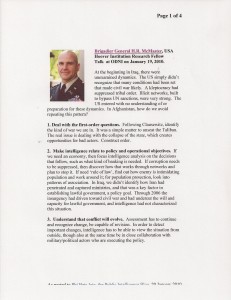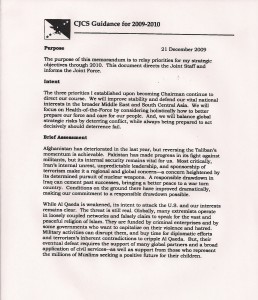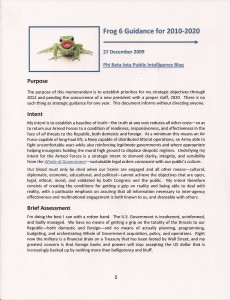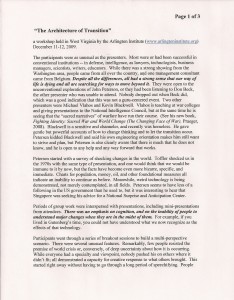We had to stop with just one year. This web site is inherently multinational and multicultural, just in its infancy.
Reference: Dr. Dr. Dave Warner & Synergy Strike Force in Afghanistan–”Save the Willing First”
08 Wild Cards, AID, Collaboration Zones, Communities of Practice, Counter-Oppression/Counter-Dictatorship Practices, DHS, Director of National Intelligence et al (IC), DoD, Ethics, Geospatial, InfoOps (IO), International Aid, IO Mapping, IO Multinational, IO Sense-Making, Maps, Memoranda, Mobile, Open Government, Policies, Real Time, Reform, Threats, Tools, United Nations & NGOs, White Papers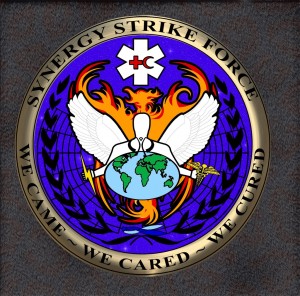
Dr. Dr. Dave Warner (PhD, MD)
Ref A: Cyber-Pass Meets Khyber Pass
Ref B: Warner to Clapper on PRT Comms
Ref C: UnityNet White Paper Final
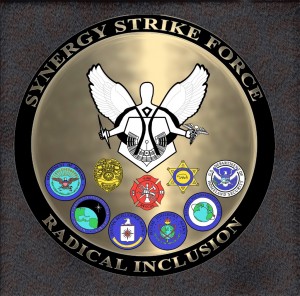
See Also:
Earth Intelligence Network “One Call At a Time”
Reference: BGen McMaster at ODNI on Afghanistan
04 Inter-State Conflict, 05 Civil War, 08 Wild Cards, Director of National Intelligence et al (IC), DoD, Government, Memoranda, Military, Non-Governmental, Peace IntelligenceMemo corrected to remove (Ret). BGen McMaster was promoted to his present rank on 29 June 2009 after being twice passed over (2006, 2007), presumably for having the integrity to be outspoken. He is the author of the widely-admired book Dereliction of Duty: Johnson, McNamara, the Joint Chiefs of Staff, and the Lies That Led to Vietnam.
Nine key factors are examined by BGen McMaster in his talk to the Office of the Director of National Intelligence (ODNI). Answers question on why we were so unprepared. Final paragraph of trip report:
Can’t get much from a database and IT networks, but contractors keep pushing and we keep buying. But what really need is experts from anywhere, context, and also need to ask the soldiers! Make Phebe Marr a general! Also pay attention to: Charles Tripp, R. Kadeiri, Sarah Chayes, Barnett R. Rubin and Ahmed Rashid, Michael Howard, Frontline piece on Children of the Taliban, Fariad Ali Han on borders. Educate analysts (and self-educate) on the place, don’t waste time training them on the process.
Reference: CJCS & Frog 6 Strategic Guidance Side-by-Side (Each is Six Pages)
DoD, MemorandaReference: Trip Report on Arlington Workshop About Imminent Catastrophic Failures and Emergent Resilience Possibilities
MemorandaEvent Report: 20 Nov 09 NYC Counterinsurgency–America’s Strategic Burden Featuring Nagl, Kilcullen, Sheehan, Bergen, Coll Among Others
Memoranda
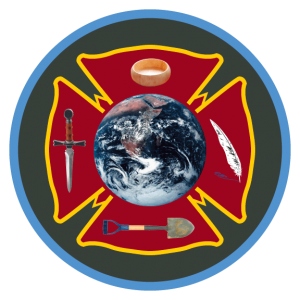
21 November 2009
Memorandum of Transmittal by Robert David STEELE Vivas
Subject: Counterinsurgency Conference Overview
Mr. Jason Liszkiewicz, Executive Director of the Earth Intelligence Network (EIN) and resident in NYC, attended the 20 November 2009 conference on counterinsurgency (speakers identified on page two), and provided me with the notes on pages 3-9. Below is my own exploitation of these notes.
IGNORANT US POLICYMAKERS. We have policymakers with crippling illusions about how the world is—worst ever—people in policy positions do not understand the problems they are making policy on—Congress is unsophisticated about Afghanistan; Washington-area decision-makers vastly misunderstand the enemy—Taliban is a super-bug adapting super-fast. This is NOT about Al Qaeda having a home base. Congress lacks next of kin engaged.
CORRUPT AFGHAN OFFICIALS. Afghan government officials own 32% of the Palm Islands in Dubai—election was “industrial-strength fraud”—tsunami of cash (US, Saudi, others) drives corruption. NOTE: No Afghans on any of the panels.
US LACKS AREA KNOWLEDGE & STRATEGY. We really do not “get” the Afghanistan-Pakistan-India context, detail, etcetera. US “strategy” of “ten cities” is a mirror of the Soviet strategy before defeat. Doctrine is not a substitute for Strategy. Water (Indus River) is central to Pakistan-India relationship (Kashmir is about water). Question NOT being asked: how do we do this without a US ground presence? “Cheap coat of paint” approach to challenges. “Tactics without strategy is noise before defeat.” Saudi money, Pakistan-Taliban axis will outlast US money and US ground presence.
COUNTERINSURGENCY MANUAL LACKING. Counterinsurgency manual is not realistic and warps policy debate—the reality of poppy crops is not in the manual, not in the “strategy/doctrine”
UN, AID, NGO OOB NOT WORKNG. UN not working, its role not thought out, shortfalls in specialized everything. Local corruption and family-political angling for contracts lead to some IED’s intended to block or redirect contract funds. AID giving contracts to Americans, not Afghans. US has no ability to create ministries from scratch. Civilian capabilities non-existent or not understood by military when they do show up. No inter-agency planning in part because the civilians have no idea why they are there or what they should do.
LOST IN TRANSLATION. Continue to lack Pashto translators. More Pashto speakers within NYPD than in all US forces across Afghanistan
EXIT OPPORTUNITIES. Afghan Army most respected institution in country, best fighters but worst policemen. US ground presence makes things worse. Solutions have to be Afghan. Afghan population wants sovereignty and independence. US troops simply surviving, not campaigning.
On page 10 I provide the “Lessons Learned” from my 1992 study of USMC operations.
Officers’ Call–Conversation About Iraq I
05 Civil War, 08 Wild Cards, 10 Security, Ethics, Memoranda, Military, Officers Call, Peace Intelligence, Strategy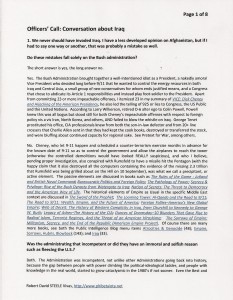
One of the great things about being the touchstone for public intelligence is the contacts that are made by students, officers and enlisted personnel serving in the field, and so many others.
While we were in Denmark, an officer now serving in Iraq sent us some questions that we answered to the best of our ability. The questions alone are listed here. For the answers, click on the cover.
1. We never should have invaded Iraq. I have a less developed opinion on Afghanistan, but if I had to say one way or another, that was probably a mistake as well.
Do these mistakes fall solely on the Bush administration?
Was the administrating that incompetent or did they have an immoral and selfish reason such as fleecing the U.S.?
Was it shortsighted political gain objectives with an underestimation of the downside?
We will have at least double the amount of dead service members before these conflicts are over as were killed during the 9/11 attacks. I read somewhere that we have 75,000 amputees due to the two conflicts not to mention the amount of PTSD. Who has the blood on their hands? Certainly nobody is willing to admit mistakes.
I don't understand how Cheney can even think about spouting off after how the conflicts have gone. Where is the cost vs gain analysis?
2. Once we did invade, we didn't have a solid plan and we didn't bring nearly enough troops if we planned on staying. Was this mainly Rumsfeld's fault?

